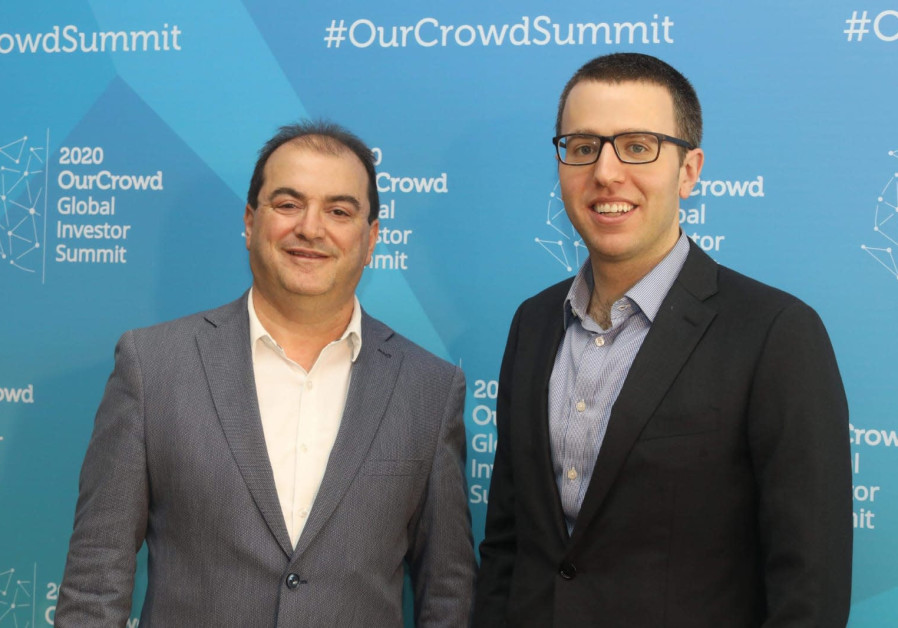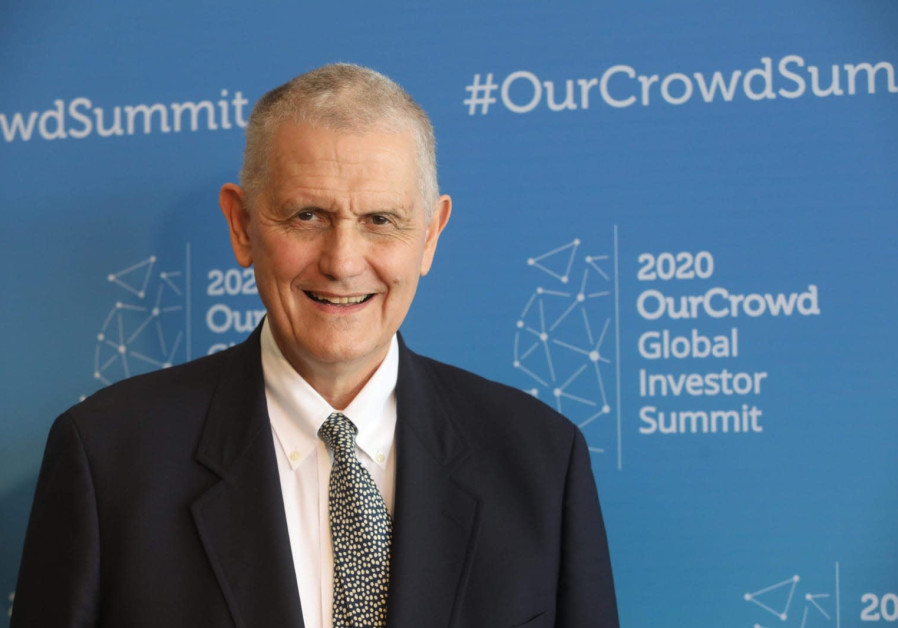In August 2018, Jonathan and Na’ama Ellman, an Israeli couple living in the United States, brought their two-year-old son Ari to the emergency room for uncontrolled vomiting. Their whole world seemed to shatter when the doctors realized that the problem was caused by a large tumor in the lower part of his brain. A complex procedure known as transnasal endoscopic skull base surgery, essentially aiming to remove the tumor through the nose, had successfully treated similar cases in the past, but had never been performed on such a young child, which presented a whole set of additional challenges.
A team at the Lucile Packard Children’s Hospital in Stanford, California, agreed to perform the operation and Israeli technology came to help: the surgeons had the opportunity to train on a virtual reality platform simulating the surgery, much like fighter pilots would do before a perilous mission, thanks to Surgical Theater, an Israeli start-up established by former Israeli Air Force officers.
Surgical Theater was one of the startups featured at the OurCrowd Global Investor Summit in Jerusalem on Thursday.
Ari’s surgery lasted 18 hours and returned the boy to a happy and normal life.
For Leah, a 78-year-old Israeli woman living in Kidron, in central Israel, a few hours in the hospital under local anesthesia was enough to be treated for squamous cell carcinoma on her cheek using Alpha DaRT radiation therapy by Alpha Tau Medical, a company that is opening new horizons for cancer treatment.
“In 2017, a pimple appeared on my cheek. The doctors tried to remove it in several ways but to no avail, until a dermatologist prescribed a biopsy and I found out that it was skin cancer,” Leah told The Jerusalem Post.
From that moment, for Leah, began a sequence of doctor appointments, tests, treatment attempts, and in the meantime the cancer grew. Five months went by, and a new test showed that the cancer had spread in five points on her cheek. The solution presented by the physicians was plastic surgery to completely remove and replace Leah’s cheek, preceded or followed by radiation therapy. She had to decide in a week.
“It felt wrong,” she recalled. “But two days later, during Hanukkah, the festival of miracles, a friend of mine called me and told me about Alpha Tau and its research.”
Established in 2016, Alpha Tau is developing an alpha-emitting radiation therapy that attacks tumors while sparing healthy tissues.
A number of clinical trials to test the treatment are ongoing in several countries around the world.
Within a few days, Leah received the treatment: 14 Alpha DaRT seeds were inserted in her cheek to irradiate alpha particles.
“After the procedure, they put a big plaster on my cheek and told me to come back in 18 days. That was all, they were wonderful,” she explained. “For the whole period, I did not feel anything, I had no side effects at all. Through this treatment the cancer was cured; it’s already been two years and it has not reappeared,” she added.
The results of the first completed clinical trial of Alpha DaRT, which was conducted in Israel and in Italy on patients with squamous cell carcinoma in the head and neck region, showed that 78.6% of the participants experienced a tumor reduction of 100% and 21.4% of them had reductions between 30% and 100%.
“We filed for the CE review of the treatment of squamous cell carcinoma and we are hoping to receive it [CE marking] in a few months.”

Before Alpha Tau came along, alpha particles were already known for being especially effective in treating cancerous cells, but because they have a very limited capacity of traveling, it was not clear how to get them to reach their targets.
Among the type of cancer that Alpha Tau technology has been experimented on are breast cancer, head and neck cancer, skin cancer and pancreatic cancer.
“We like to believe that it can be effective for all solid tumors but a lot more research is necessary to prove that,” Levy added. “Our goal is to offer patients all over the world an alternative treatment to cancer, more effective and with less side effects.”
Another startup presented at the OurCrowd summit was Insightec, an Israeli company whose technology treats deep in the brain using ultrasound and magnetic-resonance imaging (MRI), thus avoiding incision and invasive surgery.
“I could not eat without spilling food on myself, write, use a phone keypad or play with my grandchildren. About two years ago, I decided to look for solutions,” Will Irwin, a 72-year-old living in Rochester, New York, told the Post. Irwin had suffered from essential tremor his whole life, and in the past 10 years the situation had deteriorated badly.
“It was affecting every aspect of my life,” he said.
A friend of his suffering from Parkinson suggested Irwin looking into Insightec.
“I found out that a hospital in Pennsylvania was offering the therapy, and that I could be a candidate. It was not covered by the insurance and I would need to pay $30,000 dollars, but my wife and I decided that it was too important and I would do it,” Irwin said.

On January 16, Irwin underwent the procedure, which lasted about two hours.
“There was no invasive surgery, it was completely done with soundwaves focused on my thalamus. During the procedure they had me handwriting, so I went from not being able to write at all to a place where I could write beautifully as when I was in 6th grade. I was released from the hospital the next day with just a mild swelling of my face. It was a Friday, on Monday I was in the office,” he explained.
“I had not been able to write in 15 years, it was an indescribable feeling,” he added.
Irwin, who came to Israel for the first time to share his story at the summit, said he is loving the experience.
“I love the energy of the Israeli people. Yesterday I was talking to the cab driver and I explained to him why I was here. He literally cried and told me, ‘I’m so proud of my Israel, we are doing this for the world,’” Irwin said.
“I love how people from all these countries, from all over are coming here to work together. This is what is missing in our society and it is exactly what should be happening,” he concluded, emphasizing that he hopes that more and more people can enjoy the benefits of Insightec technology.
